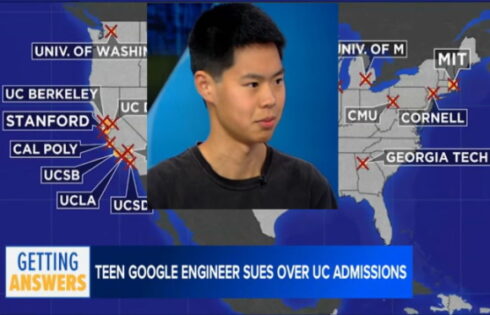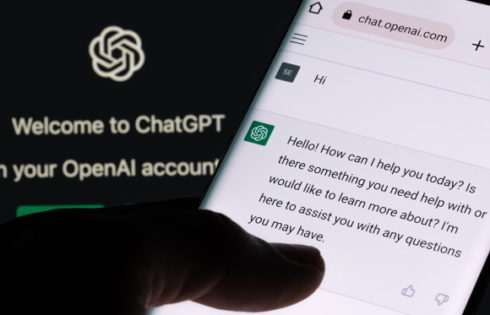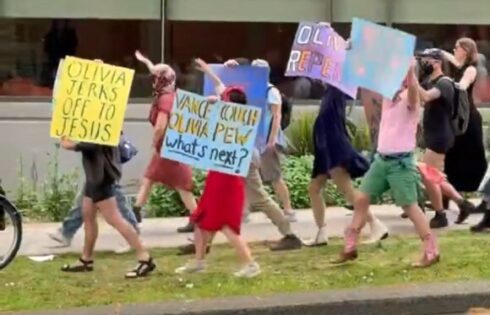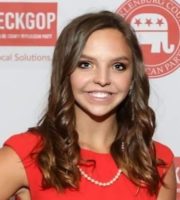
ANALYSIS: At University of North Carolina at Charlotte, little interest in ‘White Consciousness Conversations’
Only nine students showed up to take part in the University of North Carolina at Charlotte’s workshop series focused on teaching students about white privilege and related topics.
The total number of students in the audience for the first “White Consciousness Conversation,” held Sept. 10, was nine — but two were students there not as participants but as journalists mainly to observe. One was from The College Fix and another from the Niner Times campus newspaper.
Of the remaining seven students, five are members of the university’s conservative Young Americans for Freedom chapter, who were there more out of curiosity and concern about the nature of the seminar and its taxpayer-funded narrative as opposed to learning about how they allegedly perpetuate racism and inequality as Americans with white skin.
Finally, the other two students attended because their professors offered them extra credit to do so, they told The Fix.
With that, it appears the relatively new “White Consciousness Conversations” at UNC Charlotte, which boasts a student population of nearly 30,000, drew .02 percent of its student population.
Facilitators of the workshop did not respond to a subsequent request for comment from The College Fix about what they thought of the event’s low turnout.
According to the university’s website, the conversations aim to help students understand “the meaning and implications of whiteness” and how “engaging in anti-racist practice is crucial in creating racial equity.”
“This space is for all undergraduate and graduate students at UNC Charlotte who are interested in engaging in conversations to assist in their understanding of how racism is perpetuated individually, culturally, and systemically,” the website states.
The workshops first made national headlines in fall 2018 after they were advertised as only for white people. After backlash, campus leaders scrubbed and reworded the original advertisements. But the national attention, and the progressive focus of the workshops, is what drew members of YAF to the Sept. 10 workshop — as opposed to the notion that they agree with the narrative. (The author of this piece is also a member of YAF.)
Several students said they were open to hearing new perspectives, but also wanted to voice their own opinions on the matter.
The two-hour meeting was led by two campus diversity facilitators who spoke on topics such as feminism, white privilege, toxic masculinity and LGBTQ equality, and outlined their own definition of racism, one that claims that while racial discrimination can be targeted at anyone, by anyone, racism itself stems inherently from white people and their “whiteness.”
At the end of the workshop, at least two conservative students said the information presented seemed focused on blaming white people and whiteness for racism.
“I went into the event with an open mind, I wanted to learn what my peers thought about how the concept of whiteness ties into racism, whether or not it is an issue on our campus, and how we, as students, can create change if it was necessary,” YAF member Kelly VonEnde told The College Fix.
“I understand that racism is the dicrimination against someone based on their race. I believe that a person of any race can be discriminatory towards a person of any other race and that it would be considered racism. However, I was told that my definition better described as racial discrimination and that racism … can only flow from ‘whiteness’ and its inherent power. This definition made me feel as if I was in the wrong for simply being myself and accepting the body I was born with.”
“I think the creators of this event had good intentions, but … we had two different definitions of racism. Unfortunately, if we can’t agree on the definition of racism then we can’t make any meaningful steps towards productive change,” VonEnde said.
YAF member Cameron Smith echoed a similar sentiment.
He said the statements from the facilitators were vague and contradictory and “attempted to distort evidence in order to advance a specific narrative.”
“University-sponsored events like these are deeply concerning,” he said, “especially when some students who aren’t as politically active may hear one-sided theories, which are divisive without being shown any plausible solutions to their proposed issue of racial tension on campus.”
MORE: How to make big bucks: Run a white guilt workshop
IMAGE: WK1003 / Shutterstock
Like The College Fix on Facebook / Follow us on Twitter






Please join the conversation about our stories on Facebook, Twitter, Instagram, Reddit, MeWe, Rumble, Gab, Minds and Gettr.